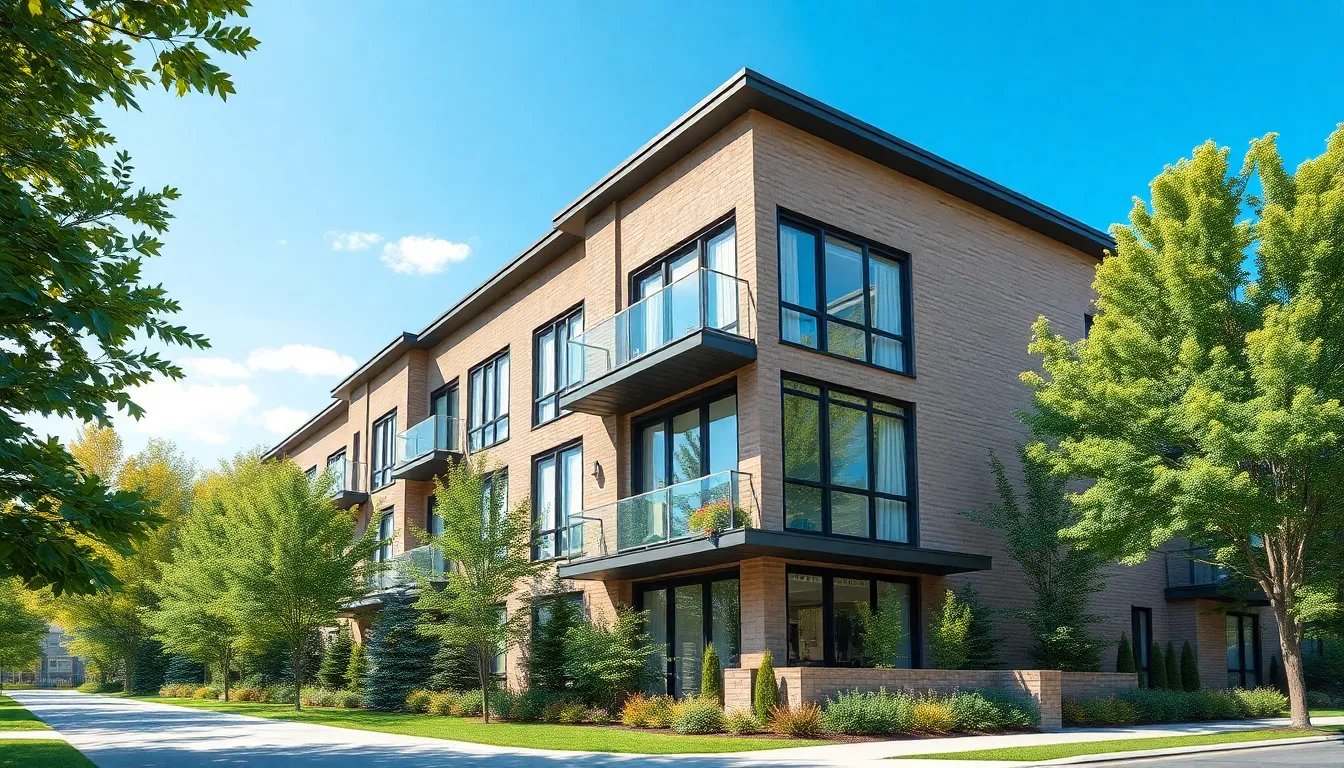Table of Contents
ToggleDeciding whether to buy a condo or rent one can feel like choosing between pizza and tacos—both are great, but each has its own perks. On one hand, owning a condo means you can finally paint the walls that hideous shade of avocado green you’ve always dreamed of. On the other, renting offers the freedom to move faster than a cat chasing a laser pointer.
Overview of Buying a Condo vs Renting
Buying a condo offers long-term investment benefits. Homeownership allows individuals to build equity over time. Personalization of space becomes possible, enabling owners to make modifications that reflect their tastes. Maintenance responsibilities typically fall on owners, which can require time and resources.
Renting provides flexibility and convenience. Tenants enjoy the ability to relocate without the burden of selling a property. Unforeseen financial issues may arise, making renting a safer choice for many. Apartments for rent usually include maintenance, relieving tenants of repairs and upkeep.
Affordability often dictates the decision between the two. Purchasing a condo typically requires a substantial upfront payment, including a down payment and closing costs. Renting usually involves lower initial costs, making it more accessible for those on a tighter budget.
Investment potential plays a significant role in determining which option suits an individual. Real estate tends to appreciate over time, hence buying may yield higher returns. Renters, on the other hand, often face increasing monthly payments without gaining equity.
Lifestyle preferences also influence decisions. Owners may prefer the stability of a long-term residence, contributing to community roots. Renters might appreciate the ability to change living environments frequently, exploring new neighborhoods.
Deciding between buying and renting hinges on several factors. Financial status, lifestyle needs, and personal goals should guide the choice. Individuals must evaluate their circumstances to identify which option aligns with their overall objectives.
Advantages of Buying a Condo


Purchasing a condo offers significant benefits over renting. Buyers often find long-term advantages that enhance their financial and personal situations.
Investment Value
Acquiring a condo represents a strong investment opportunity. Owners build equity as property values appreciate, leading to potential financial gain over time. The National Association of Realtors reports that home prices in the U.S. have risen, on average, nearly 6.4% annually. Buyers can leverage this appreciation to create wealth that renters miss out on. Tax benefits accompany condo ownership, including mortgage interest deductions that renters cannot access. In addition, owning a condo provides stability against fluctuating rental prices, which escalates with demand.
Customization Options
Owning a condo allows for extensive customization possibilities. Residents can personalize their living spaces according to their style and preferences. This flexibility extends to renovations and upgrades, offering the freedom to enhance value. Examples include kitchen remodels, bathroom renovations, or even simple decor changes that reflect personal taste. Unlike renters, owners don’t face restrictions imposed by landlords on alterations. Such customization often improves comfort and enjoyment while creating an inviting atmosphere. Ultimately, homeowners can tailor their condos to align more closely with their lifestyles.
Disadvantages of Buying a Condo
Owning a condo presents several drawbacks that potential buyers should consider. Understanding these disadvantages can inform better decision-making regarding homeownership.
Upfront Costs
Condos often require significant upfront costs. Buyers typically face down payments ranging from 3% to 20% of the purchase price, which can considerably strain finances. Closing costs, including fees for inspections and appraisals, add further expenses. Maintenance fees also come into play, covering shared amenities and property management services. These initial financial obligations can be a barrier for some individuals, especially those with limited budgets.
Maintenance Responsibilities
Homeowners bear the brunt of maintenance responsibilities. While condo associations manage common areas, owners must address repairs within their units, which can lead to unexpected expenses. Routine upkeep, such as plumbing issues or appliance replacements, may arise at inconvenient times. Unlike renters, condo owners cannot simply request repairs from landlords. This responsibility underscores the need for financial preparedness when considering ownership.
Advantages of Renting
Renting offers distinct perks that appeal to many individuals and families. The primary advantage lies in flexibility and mobility. Renters can easily relocate, making it simple to move for job opportunities or lifestyle changes. Shorter lease terms, often ranging from six months to a year, provide the freedom to explore different neighborhoods without long-term commitment. This aspect proves beneficial for those who value adaptability in their living situations.
Another significant benefit entails a lower initial investment. When renting a condo, upfront costs remain minimal compared to purchasing. Typically, renters pay first month’s rent and a security deposit, rather than a hefty down payment and closing costs tied to ownership. This affordability allows individuals to allocate funds to other priorities, such as saving for future goals or investing in experiences. Overall, the financial accessibility of renting caters to people managing tighter budgets.
Disadvantages of Renting
Renting a condo presents several drawbacks that potential renters should consider.
Lack of Long-Term Investment
Renters don’t build equity despite monthly payments. Funds allocated toward rent contribute to the landlord’s investment instead of the renter’s future financial stability. Significant increases in rental rates often occur at lease renewal, leading to unpredictable housing costs. Without the ability to capitalize on property appreciation, renters miss out on potential financial gains that can come with property ownership. Long-term wealth accumulation remains more challenging for those who choose to rent, as future investment options dissolve in favor of transient living situations.
Limited Control Over Property
Renters typically face restrictions set by landlords. Control over renovations or customizations remains largely absent, preventing individuals from tailoring their living spaces to their personal preferences. Maintenance issues often need landlord approval, resulting in delays in addressing urgent repairs. Restrictions on pets, noise levels, and aesthetic changes can create friction for those looking to personalize their homes. In contrast, homeowners generally enjoy the freedom of making decisions that align with their lifestyles, offering an enhanced sense of belonging and comfort.





